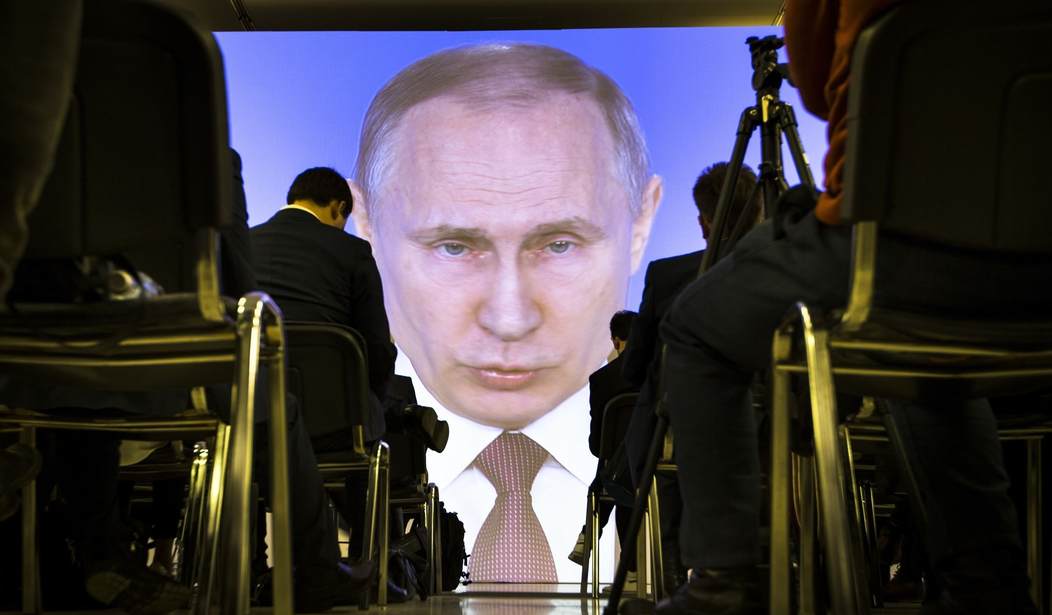Last week, I had the privilege of speaking at CPAC on a panel alongside Dr. Zuhdi Jasser and Ambassador John Bolton. I had been asked to speak about a variety of security threats facing the United States, paying particular attention to Russia, given my knowledge of the region and of the general phenomenon of Putinism. Given the recent Mueller indictments, I anticipated that initial questions surrounding our terse relations with the Kremlin would focus upon Russia’s methods of information warfare. And indeed, the questions appropriately were.
While moderator Raheem Kassam did make a joke about the media’s infamous fascination with unproven collusion claims, the spirit of our discussion on Russia’s meddling was far from casual or trite. I started by explaining how the collapse of the Soviet Union (and by default, Soviet communism) has deprived us of the Communism versus Democracy binary prism through which we traditionally viewed our relations with the Kremlin.
The post-Cold War environment has been a period of waning for Russia; however, given Russia is the only country in the world that has achieved nuclear parity with us, she holds a particular significance for us—an emphatically sarcastic “special place in our hearts” when it comes to national security considerations—despite her arguably weakening status on the global stage. Finally, Russia has never prioritized individual rights as democratic systems have, and this dismal outlook has informed a large part of the nation’s security policy approach.
Russia’s propensity for information warfare should be of primary focus in our discussions of Russia, and therefore, I went into detail about the propaganda arm of the Kremlin, called Rossiskaya Sotrudnichestva. Established in 2008, the government-funded organization oversees the creation and funding of pseudo-NGOs located around the globe, designed to disseminate the Kremlin’s narrative beyond the borders of Russia. I mentioned that Rossiskaya Sotrudnichestva’s methods include attempting to foster pro-Russian sympathies within populations and to convince said populations that their own government is horribly inept.
Recommended
Over the course of the panel, I did express that, oddly enough, the current reporting environment of constant attacks on the executive branch seem to aid this approach. I acknowledged fully that criticism is healthy, but there can approach a point where hysterical criticism is not. I stated that Russia’s information warfare tactics are widespread, and though this organization sprouted only in 2008, this type of warfare is not new to the Kremlin.
Here’s how my contribution was initially described by TIME’s reporter Philip Elliott:
“Erielle Davidson, a scholar at Stanford’s conservative Hoover Institution, added: “Russia will always have a special place in our hearts.” She said media coverage of the Russia probe feeds Russian propaganda and should be seen as hostile to American democracy. “There comes a point when criticism becomes unhealthy,” she said.”
The dishonest and lazy reporting that formulated the above excerpt is exactly why, even when conservatives attempt to bring a voice to the discussion of Russia, they often cannot. Nothing about my conversation suggested, implied, or encouraged coziness with Russia. A pejorative was employed to discuss precisely why we still remain perpetually wary of Russia—Russia is the only other country in the world with the nuclear capacity to incinerate our country in under an hour. Nor did I imply that criticism was hostile to democracy. Criticism is productive—and sometimes, surprisingly not, if full of hyperbole and inaccuracies.
The media narrative is framed in such a way that honest dialogue isn’t often given its fair consideration—sentences are instead edited and sloppily patched together to fit the author’s preconceived notions. After reaching out to TIME, the direct quote was eventually edited to include a reference to national security, but the damage had been done—and the ridiculous title “'It's a Whole Lot of Nothing.' Trump's CPAC Supporters Don't Want to Talk Russia” has remained. It’s a shame, but when certain journalists bemoan accusations of #FakeNews, I’ll show them this precise article. It was pathetically clear the article’s author Philip Elliott went into CPAC with a particular agenda—and couldn’t stand to disappoint his narrative, at the expense of his own reporting.

























Join the conversation as a VIP Member